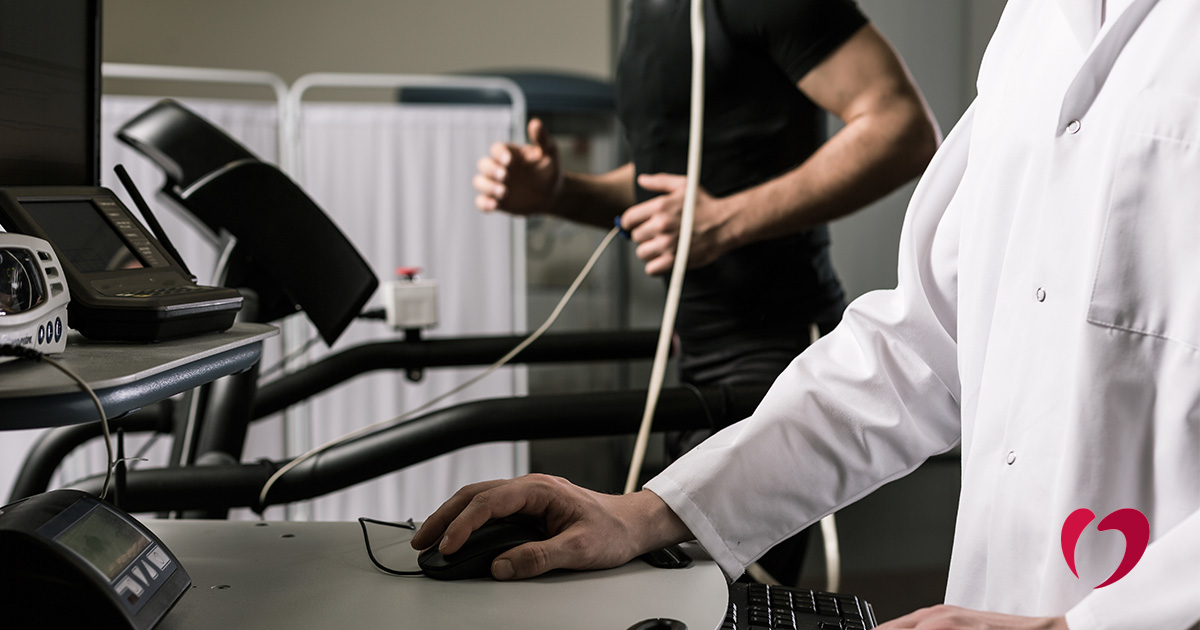What is a stress test?

There are times when a patient experiences some degree of cardiac symptoms in their daily life but an in-office exam and electrocardiogram (ECG) don’t show any problems.
In situations like these, your heart specialist may recommend one of several types of stress test, which helps measure how your heart and blood vessels respond to physical exertion, whether true physical exertion or chemically induced exertion.
A stress test may be recommended for patients experiencing shortness of breath, chest heaviness, or periodic chest pain. These tests can help diagnose how your heart responds to exercise, if blood supply is reduced, or if any issues with heart rhythm occur during exercise.
There are several types of stress tests, which can be used both to diagnose heart disease and to monitor how treatment is impacting heart function. Your Oklahoma Heart Hospital physician can recommend which stress test is needed for your particular symptoms and health history.
Standard Stress Test
In a standard stress test, you will walk on a treadmill while your heart activity is monitored through an ECG. In some cases, you may also wear a mask to monitor your breathing to gather additional information about how your heart and lungs are functioning. Your heart rate and blood pressure, as well as how you feel, will be monitored throughout the test as well.
As your body works harder to increase the pace during this test, it requires more oxygen, which requires the heart to pump more blood. A stress test can show if blood supply drops, which may signal heart problems that require further testing and treatment.
Chemical Stress Test
Some patients may not be eligible for a standard stress test, often due to mobility concerns that limit their physical activity. When needed, specific drugs can be used to stimulate the heart in the same way as exercise. With a chemical stress test, monitoring is similar to a basic stress test: heart rate, blood pressure, ECG, and questions about how you are feeling during the test.
Stress Echocardiogram
A stress echocardiogram includes the use of ultrasound before and after to further analyze any changes in the heart. A stress echocardiogram is done in conjunction with either a standard stress test or a chemical stress test.
Nuclear Stress Test
A nuclear stress test injects dye into your bloodstream in order to take images of your heart at rest and after stress. This test can help doctors see the size and shape of your heart and measure how well it’s pumping (ejection fraction). As with a stress echocardiogram, the nuclear stress test can be used in conjunction with either a standard stress test or a chemical stress test.
If you are experiencing shortness of breath, chest heaviness, or periodic chest pain, contact the Oklahoma Heart Hospital today to schedule an appointment with one of our physicians.
